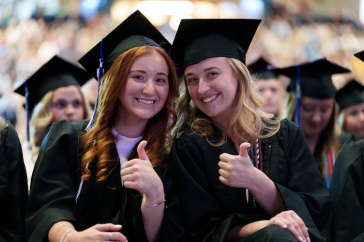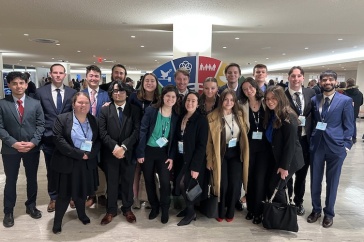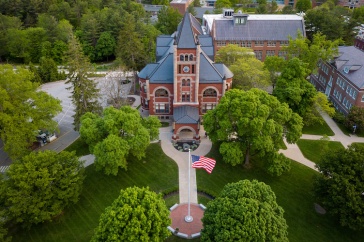Andrew Smith, director of the UNH Survey Center and associate professor of political science, has been awarded this year’s Kennedy Achievement Award by the Association for Academic Survey Research Organizations (AASRO). Named for John M. Kennedy, who served as director of the Center for Survey Research at Indiana University from 1987 to 2011, the award recognizes, among other values, meritorious service to AASRO or its member organizations; leadership in public opinion research that promotes the value of survey research and promotes quality in survey and public opinion data collection.
A nationally recognized expert in public opinion research and presidential politics, Smith is being honored for his service and leadership to the survey research profession, his teaching in political science, his survey methods research and for his work directing the Survey Center. His areas of expertise include trends regarding political candidates and issues, the New Hampshire Primary and presidential politics.
"Andy Smith is a valued and respected member of our field who is highly deserving of this recognition."
Smith’s survey methods research focuses on question wording effects, question and response order effects, non-attitudes and methodologies for improving the accuracy of pre-election polls. AASRO recognizes Smith not only for his substantive contributions to the field and his teaching, but also his years of service to his profession.
“Andy Smith is a valued and respected member of our field who is highly deserving of this recognition. Dr. Smith’s excellent work training the next generation of public opinion researchers and advancing our field is a credit to your institution,” says Martha Van Haitsma, AASRO Awards chair.
UNH was a founding member of the AASRO, launched in 2008, and hosted the 2013 conference. Smith has served as AASRO president as well as chairman of numerous committees.
In part, the plaque reads, “This award is in recognition and appreciation of your extensive and selfless contributions to academic survey research.”
















































